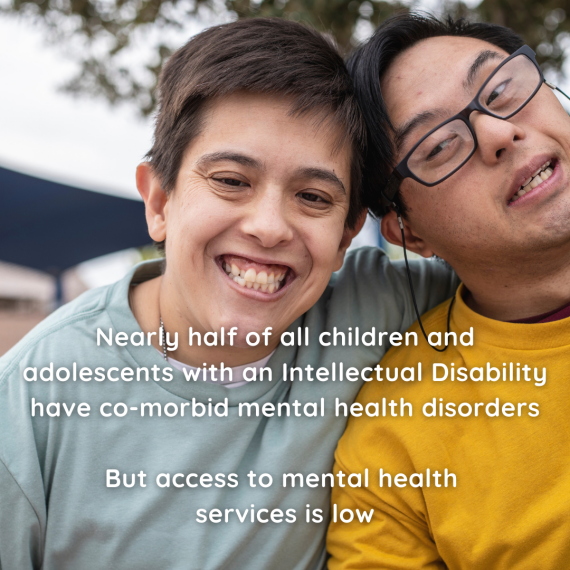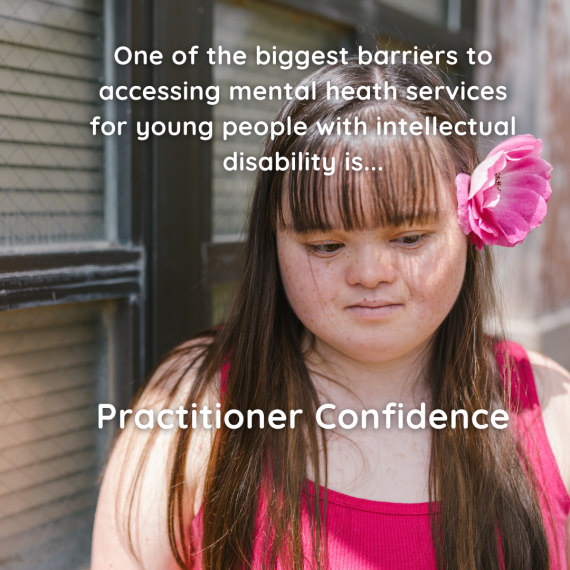ACCESSABILITY
Adapting Therapy for Children and Adolescents with Intellectual Disabilities
Nearly half of all children and adolescents with an Intellectual Disability (ID) have co-morbid mental health disorders along with elevated rates of both externalising and internalising problem behaviours compared to their typically developing peers, with anxiety reported as the most prevalent mood disorder in young people with ID.
Despite this, rates of mental illness remain high and access to mental health services is low.
Once mental health problems emerge, young people with ID are likely to suffer from them for a long time and can significantly impact educational, vocational and social opportunities.

Research supports the use of psychological therapies among young people with mild to moderate ID
But many practitioners don't know how to adapt CBT

Support your NDIS clients with more confidence
Learn how Cognitive Behaviour Therapy (CBT) can be adapted for the unique learning needs of children and adolescents
How to properly assess mental health concerns in young people with ID
The barriers to accessing psychological treatments
What neuropsychological adaptations are required for treatment
How to provide CBT for children and adolescents with ID in both group therapy settings and individuals consultations
Attend a Workshop
Also available at your workplace or conference
Group discounts (5+) available on request.




